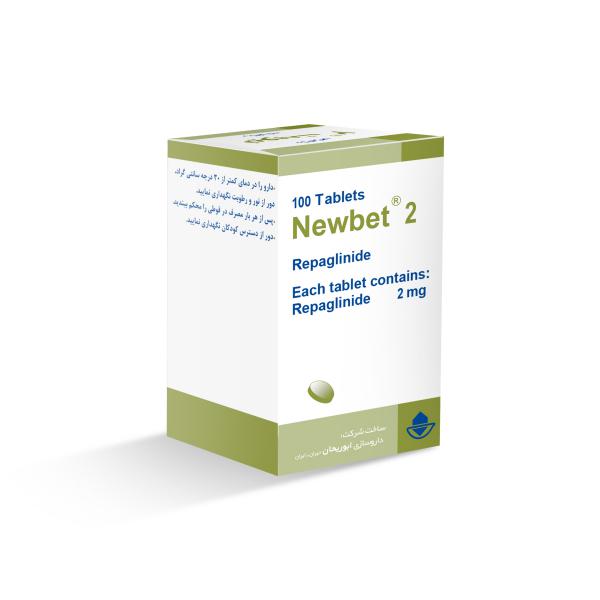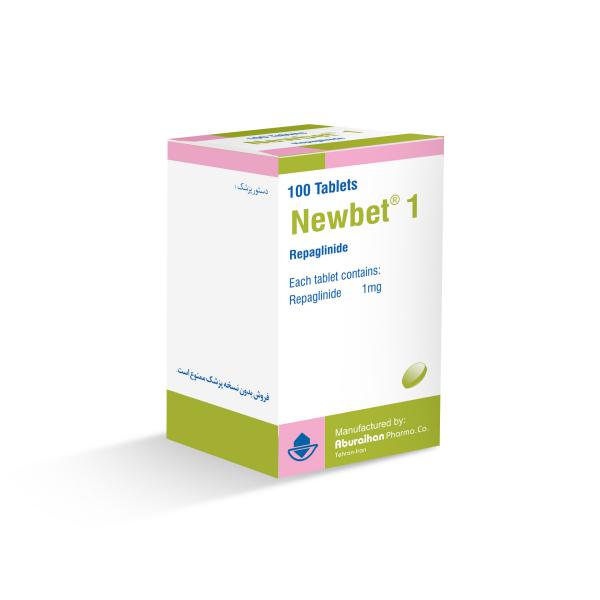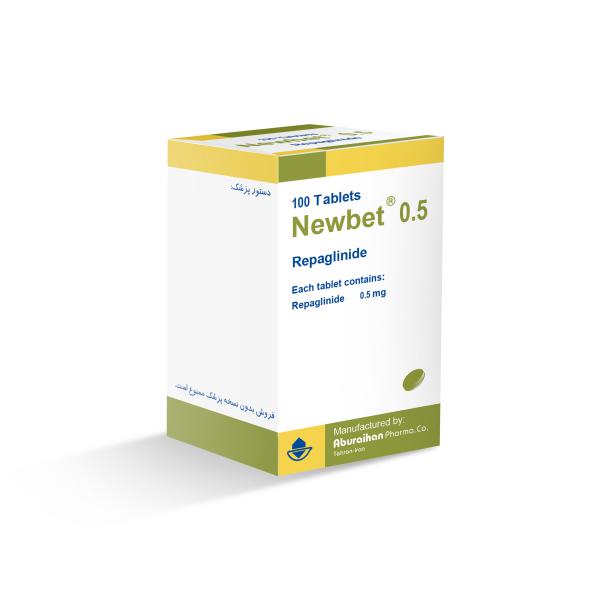Newbet®
Repaglinide
tablet
Diabetes mellitus, type 2
Mechanism of Action:
Nonsulfonylurea hypoglycemic agent which blocks ATP-dependent potassium channels, depolarizing the membrane and facilitating calcium entry through calcium channels. Increased intracellular calcium stimulates insulin release from the pancreatic beta cells. Repaglinide-induced insulin release is glucose-dependent.
Method of Administration:
HbA 1c <8%: Oral: 0.5 mg before each meal (up to 4 times/day).
HbA 1c ≥8%: Oral: 1 to 2 mg before each meal (up to 4 times/day).
Notes
Contraindications:
Hypersensitivity to repaglinide or any component of the formulation; concurrent gemfibrozil therapy
Interactions:
Antidiabetic Agents: May enhance the hypoglycemic effect of Hypoglycemia-Associated Agents. Risk C: Monitor therapy
Clopidogrel: May increase the serum concentration of Repaglinide. Management: Avoid use of clopidogrel and repaglinide if possible; if the combination must be used, limit total repaglinide daily dose to no more than 4 mg. This is contraindicated in some non-US labeling. Risk D: Consider therapy modification
Glucagon-Like Peptide-1 Agonists: May enhance the hypoglycemic effect of Meglitinides. Management: Consider meglitinide dose reductions when used in combination with glucagon-like peptide-1 agonists, particularly when also used with basal insulin. Risk D: Consider therapy modification
Quinolones: May enhance the hypoglycemic effect of Agents with Blood Glucose Lowering Effects. Quinolones may diminish the therapeutic effect of Agents with Blood Glucose Lowering Effects. Specifically, if an agent is being used to treat diabetes, loss of blood sugar control may occur with quinolone use. Risk C: Monitor therapy
Teriflunomide: May increase the serum concentration of OATP1B1/1B3 (SLCO1B1/1B3) Substrates (Clinically Relevant with Inhibitors). Risk C: Monitor therapy
Thiazide and Thiazide-Like Diuretics: May diminish the therapeutic effect of Antidiabetic Agents. Risk C: Monitor therapy
Pregnancy and Lactation:
Agents other than repaglinide are currently recommended to treat diabetes mellitus in pregnancy.
It is not known if repaglinide is present in breast milk.
Due to the potential for hypoglycemia in the breastfed infant, breastfeeding is not recommended.
Warning and Precaution:
- Hypoglycemia: Severe hypoglycemia may occur; risk may be increased by changes in meal patterns, changes in physical activity levels, changes to coadministered medications, and concomitant use with other antidiabetic agents.
Adverse Reactions:
Central nervous system: Headache (9% to 11%)
Endocrine & metabolic: Hypoglycemia (16% to 31%)
Respiratory: Upper respiratory tract infection (10% to 16%)
Storage:
Store below 30ºC and protect from light and moisture.



